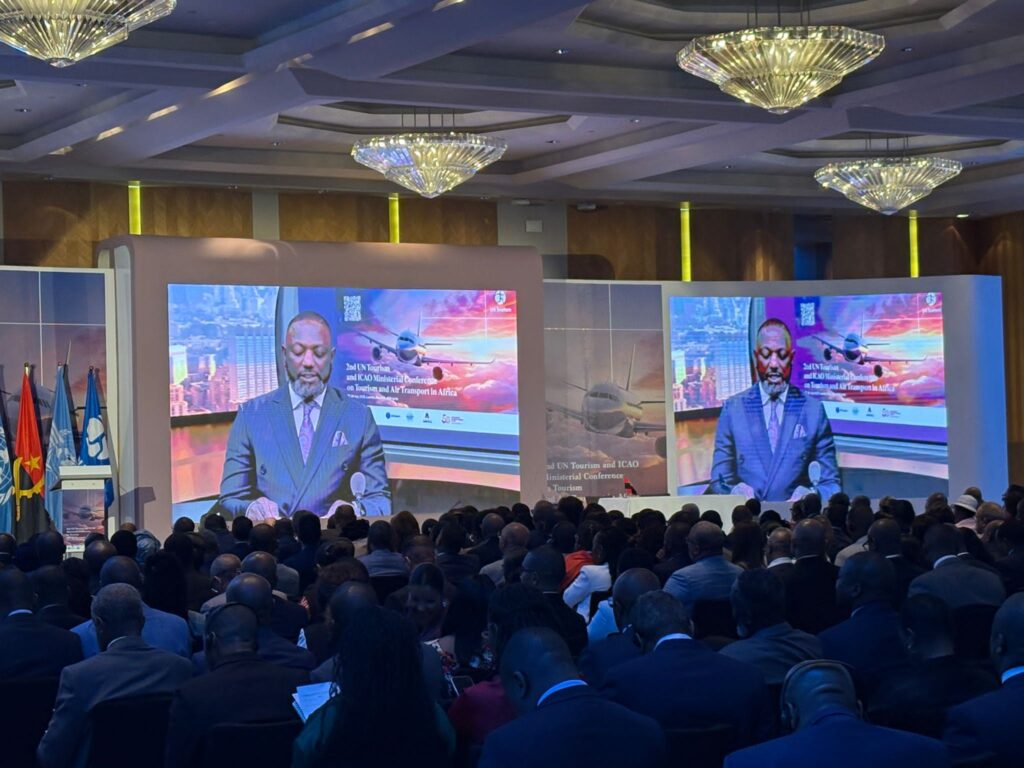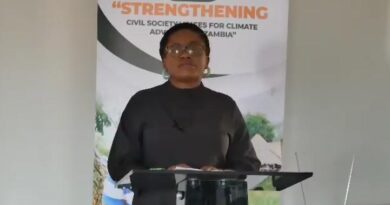Zambia’s Tourism Minister Calls for Bold Reforms to Boost Africa’s Air Connectivity and Tourism
Zambia’s Minister of Tourism and Chairperson of the UN Tourism Commission for Africa (CAF), Honourable Rodney Sikumba, MP, has called for decisive reforms to unlock Africa’s tourism and aviation potential. The call came during his virtual keynote address at the official opening of the 2nd United Nations Tourism and International Civil Aviation Organisation (ICAO) Ministerial Conference on Tourism and Air Transport in Africa.
Held in Luanda, Angola from 22 to 24 July 2025, the high-level conference has brought together African Ministers, global aviation and tourism leaders, and key stakeholders to explore transformative strategies for sustainable air transport and tourism development on the continent.
Honourable Sikumba opened his remarks by commending the Government of Angola for its hospitality and the effective organisation of the conference. He underscored the significance of the event, held as the world marks the 50th Anniversary of UN Tourism and the 80th Anniversary of ICAO.
“Now is the time to act with ambition and unity,” Honourable Sikumba said, urging African leaders to strengthen regional integration through air connectivity and inclusive tourism. He highlighted Africa’s post-pandemic recovery, noting a record-breaking 74 million international tourist arrivals in 2024—surpassing pre-COVID-19 levels.
Despite this progress, Sikumba pointed to persistent barriers such as limited intra-African air connectivity, high travel costs, and insufficient infrastructure investment. He urged African nations to move beyond dialogue and commit to real, inclusive, and sustainable action.
Reaffirming Zambia’s commitment, Honourable Sikumba pledged to support policy alignment, infrastructure development, and stronger collaboration with regional and global partners. As Chair of CAF, he vowed to champion the harmonisation of tourism and aviation policies, support the implementation of the Single African Air Transport Market (SAATM), and promote seamless travel using smart and green technologies.
He also emphasized the importance of accessibility and inclusion, particularly for persons with disabilities and limited mobility, as part of Africa’s broader transformation agenda.
In his closing, Sikumba urged governments, private sector players, and development partners to use the Luanda conference as a platform for innovation, bold reform, and impactful partnerships. “Zambia remains committed to building a resilient, connected, and inclusive Africa for the benefit of present and future generations,” he concluded.



